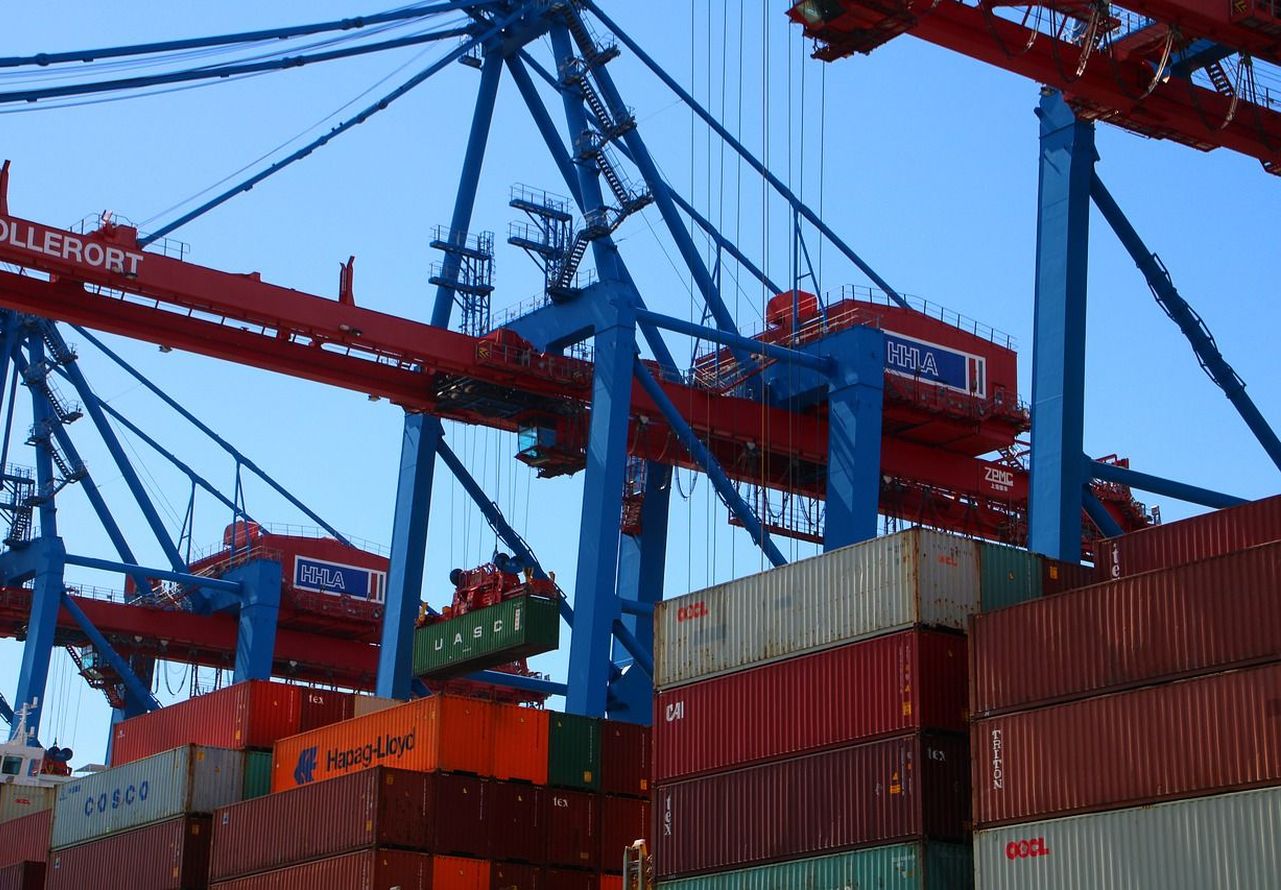DMS Logistics is optimizing inland container transportation
The inland container logistics chain suffers from low digitization, which limits organization and communication between the various parts of the chain. To overcome this problem, the start-up DMS Logistics, incubated at Mines Saint-Étienne, is developing a platform to optimize management of these flows of goods. It uses machine learning methods to automate the creation of schedules, reduce congestion at terminals and boost the competitiveness of ports and their logistics networks.
Ports’ ability to streamline the transfer of goods impacts their competitiveness in a sector where the competition is fierce. Yet, one of the major problems for this type of infrastructure is their permanent congestion. This is explained in part by the physical capacity to receive trucks at terminals, but is also due to the lack of anticipation in the exchange of containers with carriers. This results in costly slowdowns and detention charges for every delay. At the heart of the problem is a lack of communication between the various participants in the same supply chain: terminals, road carriers, container parks, ship-owners, freight forwarders etc.
To help overcome this problem, the start-up DMS Logistics seeks to bring together all of these participants through a platform to optimize and anticipate the inland flow of containers. “This is a major market with 800 million containers exchanged every year worldwide,” explains one of the three founders, Xavier Des Minières, a specialist in inland logistics. Using operational data from each participant in the chain, the start-up has successfully optimized the overall supply chain rather than an individual part of the chain. This software solution therefore achieves the goals of the French government’s strategic plan “France Logistics 2025” initiated in 2016 to make national logistics more efficient and attractive.
Digitizing companies that work with containers
“The logistics sector is still little digitized. It is made up of many SMEs with very small profit margins who cannot afford to buy digital tools to manage their operations,” explains Xavier Des Minières. DMS Logistics is solving this problem by equipping these users digitally and adapting to their resources. However, the solution becomes more useful when it groups together all the parts of the supply chain. To do so, the company is targeting the terminals around which all the other inland transportation participants revolve.
DMS Logistics’ solution is a distributed cloud-based SaaS (Software as a Service) platform. It enables users to enter their operational data online: container movement, missions to accomplish or already carried out etc. For participants that have already gone digital, the service connects to their data through an API (Application Programming Interface) protocol. Since it was founded in 2020, the start-up has collected 700,000 container movements. This massive amount of data will feed its machine learning algorithms. “We’re automating three key time-consuming actions: managing operations schedules, making appointments at terminals and communication between partners,” says Xavier Des Minières.
Predicting flows based on data history
Why does this sector need to be automated? In the field, many participants in the chain respond to management difficulties in real time, using walkie-talkies or over the phone. They are constantly dealing with seemingly unforeseen difficulties. “However, we have shown that there is a lot of redundancy in the operational behavior of the various participants. The difficulties are therefore predictable and our algorithms make it possible to anticipate them,” explainsCyriac Azefack, a data scientist at DMS Logistics who holds a PhD in artificial intelligence.
The prediction is even more accurate when it cross-references data from the various participants. For example, carriers can optimize drivers’ schedules based on times for appointments offered by terminals to pick up goods. Furthermore, carriers’ behavior (history of their operations, inventory movement etc.) can be used to identify appropriate time slots for these appointments. Carriers can then access the terminal when it is convenient for them to do so and when it is not crowded. This seemingly simple organization was not possible before now.
An even higher level of optimization can be reached. “Still using carriers’ behavioral data, we identify the drivers and trucks that are most suited for a mission (local, long distance, etc.),” adds Taki-Eddine Korabi, a data scientist at DMS Logistics who holds a PhD in mathematics, computer science and automation. Ultimately, the overall optimization of an ecosystem results in better local management.
Towards the optimization of local logistics ecosystems
DMS Logistics’ solution is distributed in the Ivory Coast and in Marseille, where a team of 12 people are based. “After 4 months of operations at our pilot facility, we can predict the arrival of trucks at a terminal with a reliability rate of 98% over a week,” explains Xavier Des Minières. For the terminal, this means 15% savings in resources. Moreover, when a port is efficient, it boosts the attractiveness of the entire region. The economic benefits are therefore wide-ranging.
Another key finding: optimizing flow at the terminals also helps the ports in their efforts toward ecological transition. More efficient organization means less unnecessary transportation, a reduction in traffic at ports, and therefore less local pollution. And air quality is improved.
On the scientific side, research has only focused on optimizing container carriers’ operations since 2015 and on-the-ground information is still lacking. “We’re going to be starting a Cifre PhD with Mines Saint-Étienne which will rely on the use of data collected by our platform. That will allow us to explore this topic in an optimal way and offer bright prospects for research and the logistics business,” concludes Taki-Eddine Korabi.
By Anaïs Culot
Read on I’MTech: AlertSmartCity, Cook-e, Dastra, DMS, GoodFloow, JobRepublik, PlaceMeet and Spectronite supported by the “honor loan” scheme





Leave a Reply
Want to join the discussion?Feel free to contribute!